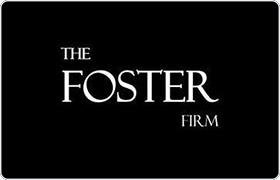 Milligan Felony Lawyers, Florida
Milligan Felony Lawyers, Florida
Sponsored Law Firm
-
 x
x

Click For More Info:
-
The Foster Firm
42 Business Centre Drive Suite 301 Miramar Beach, FL 32550» view mapCriminal Defense Law We Will Protect Your Rights!
Our law firm has been operating for more than 15 years and our team has numerous years of experience between them, to ensure you get the best legal advice possible.
800-940-3710
Not enough matches for Milligan Felony lawyer.
Below are all Milligan Criminal lawyers.
Lawyers
1-3 of 3 matches
Personal Injury, Civil Rights, Criminal, Mass Torts, Commercial Real Estate
Lawsuit & Dispute, Divorce & Family Law, Criminal, Bankruptcy & Debt




 James J. Foster Miramar Beach, FL
James J. Foster Miramar Beach, FL Practice AreasExpertise
Practice AreasExpertise